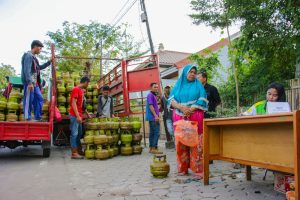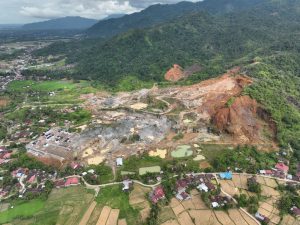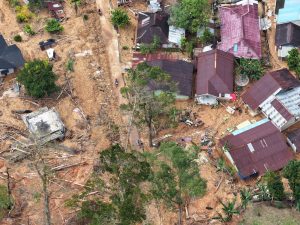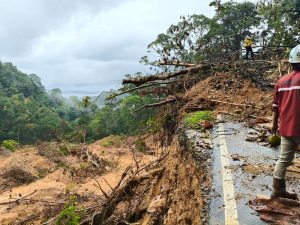Jakarta – Supernova Ecosystem has launched a green financing instrument to support sustainable economic growth and forest conservation. The program is targeted to support 120 sustainable businesses by 2030 and is expected to absorb 7 million tons of CO2, save 700 thousand hectares of forest area, and create 13,000 jobs for indigenous peoples.
In a media discussion titled “Green Funding Instrument Innovation for Sustainable MSMEs” in Jakarta, Inez Stefanie, Equator Capital Partner of Supernova Ecosystem, explained Supernova Ecosystem’s catalytic role in bringing together business owners, financiers, and government to support sustainable businesses.
She explained in early April, “There are two flagship programs to make this happen, namely the Constellation Accelerator and Equatora Capital. Hopefully, this can address the supply chain’s environmental and social business risk gap.”
Inez also shared that Supernova Ecosystem’s short-term target by 2025 is to conserve 35,000 hectares of land, impacting 3,500 forest farmers, fish farmers, and plantation farmers. Seven key commodities, including cacao, coconut, and cashew, will be developed in their pipeline, mostly located in the Eastern part of Indonesia.
“Multi-stakeholder collaboration is necessary to achieve these targets. This is what Supernova Ecosystem continues to do together with its partners, such as Lingkar Temu Kabupaten Lestari (LTKL), Koalisi Ekonomi Membumi (KEM), and other multi-stakeholder organizations,” he added.
The discussion session highlighted the challenges in developing Green MSMEs or sustainable businesses in Indonesia. Dr Mubariq Ahmad, an Economist and Environment Expert, cited key challenges, including limited government funding and business owners’ lack of access to impact investment facilities.
“The second challenge is the lack of awareness of the use of conventional banks and the ability to access them from business owners,” he added.
However, Ahmad is optimistic about Indonesia’s huge potential in developing sustainable businesses.
“If conventional business models can be transformed into sustainable businesses, the MSME sector has the potential to have a major impact on efforts to reduce national carbon emissions as well as economic growth,” he said.
Dr Mahpud Sujai, a sustainable finance policy practitioner, highlighted the role of regulation in developing sustainable businesses.
“The Indonesian Sustainable Green Taxonomy (TKBI) regulation will protect the implementation of sustainable finance applications, including financing towards the transition to sustainable economic growth,” he explained.
Meanwhile, LTKL (Lingkar Temu Kabupaten Lestari), as a Supernova Ecosystem partner, has conducted various sustainable business development programs in 9 sustainable district members.
“We work with member district governments to map commodity potential and the potential for developing nature-based innovative products,” said Vitri Sekarsari, Deputy Head of Partnership, Communication and Resource Mobilization at LTKL.
The LTKL program with KEM is expected to be an example of successful collaboration in achieving sustainable business.
“KEM’s target is to open USD 200 million funding for 100 sustainable businesses connected to 100 districts that are committed to being sustainable,” said Bryan Citrasena, Partnership and Communications Manager, KEM.
Through the joint efforts of Supernova Ecosystem, LTKL, and KEM, it is hoped that access to funding and markets for Green MSMEs will increase, so that their contribution to sustainable economic growth can be realized. (Hartatik)















